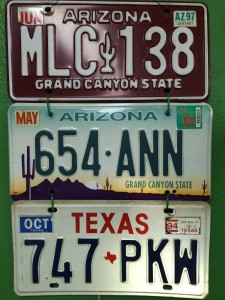What are you good at?
Do you have a green thumb and grow beautiful plants? Are you a whiz in the workshop, building lovely pieces of furniture? Are you a talented public speaker or a great cook? An expert teacher in your discipline?
How did you become good at what it is you’re good at?
Whatever it is we’re good at, part of the reason is that we learned from someone else. We were instructed. We were taught. Pick any field of study or any skill and you can be certain that the best and brightest didn’t get there on talent alone. The most talented surgeon learned techniques from other surgeons while in medical school. The most learned scholar was challenged to think by elementary, high school, and college teachers. The best jazz musicians, like Wynton Marsalis, studied technique and listened to the recordings of jazz greats like Louis Armstrong and Dizzy Gillespie.
Isaac Newton, one of the most brilliant men who ever lived said, “If I have seen further it is by standing on the shoulders of giants.”
We are who we are because we’ve learned from someone else.
What about God?
The prophet Isaiah asked the rhetorical question, “Who taught God how to be God?” (Isaiah 40:13-14)
In theology, it’s known as “the freedom of God”. God is completely free and independent from His creatures and creation. Perfectly independent. To answer Isaiah’s rhetorical question, no one instructed God. God had no teacher. No one enlightened Him. Words you’ll never hear God say…
“So that’s how you do it!”
“Now I get it!”
“With a little practice, I think I’ll have it down.”
Or, “I have a question…”
We are who we are because we learned from someone else.
God is who He is because…He is Who He is. God is God. And He learned from no one.
Besides being an interesting theological concept, how does this relate to you and me? The freedom of God has everything to do with His relationship to us. Because God is self-sufficient, He is not obligated to us. We can never put Him in our debt because we have nothing that He needs. God will never owe us anything. We contribute nothing to Who He is. God is the only One who can stand on stage with the award in His hand and say with complete integrity, “I’d like to thank no one. Because it’s all about Me.”
When thought about in those terms, it can make God feel distant. A perfectly self-sufficient God who is independent and completely free from His creatures and creation. The correct assumption is that God does not need you or me. And it is this very freedom of God that blasts meaning into our relationship with Him.
God does not need a relationship with us. He wants a relationship with us.
God doesn’t love us out of obligation. In the freedom of His self-sufficiency, He chooses to love us with all of His being. God doesn’t watch over us and take care of our daily needs because we bailed Him out of a tough spot and He’s paying us back. God takes care of us because He wants to. God doesn’t stick with us because we helped him through a difficult period in His life and feels He owes us a debt of gratitude. God sticks with us because He wants to.
One might wonder, “If God is here with me because He wants to be and He doesn’t owe me anything, what’s to say He won’t leave someday?” God won’t leave us, not because of His lack of obligation to us, but because He is bound by His own perfection. 2 Timothy 2:12 says that “even if we are faithless, God remains faithful; for He cannot deny Himself.” God is bound by His own perfection. His volition is permanently attached to His perfect integrity. So when God says, “I will never leave you or forsake you”, it’s an eternal promise.
God doesn’t love you because He has to. He loves you because He wants to. In His freedom, the God who doesn’t need anything wants an intimate relationship with you. And with that desire, He brings everything He has to the relationship. Friendship. Courage. Peace. Forgiveness. Patience. A plan for your life that is grand and goes beyond what you can see. And it’s all wrapped up in a loyal love that will not let you go.
If we see further by standing on the shoulders of giants, how much further by standing on the shoulders of God?
Todd A. Thompson – December 3, 2009


